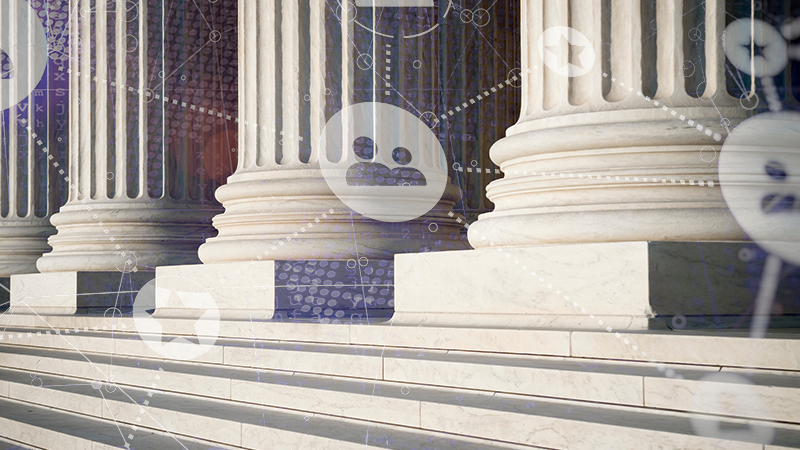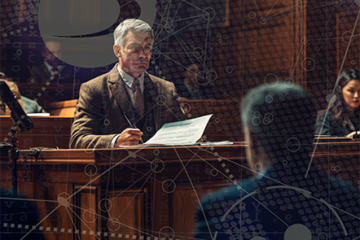Ensuring Fairness and Reliability
Expert witnesses play a critical role in legal proceedings. Their testimony must adhere to strict ethical and methodological standards to ensure fairness and reliability. Issues such as bias, hearsay, speculation, and reliability are central to the admissibility and credibility of expert testimony. Courts have developed standards to address ethical considerations like these and maintain the integrity of the judicial process.
Bias
Bias in expert witness testimony can significantly impact the fairness of a trial. Experts must provide unbiased opinions based on their expertise. However, various factors can introduce bias, such as financial incentives, personal beliefs, or pressure from the hiring party. For instance, in the case of Daubert v. Merrell Dow Pharmaceuticals, Inc., the Supreme Court emphasized the need for judges to act as gatekeepers. This ensures that expert testimony is both relevant and reliable, thereby mitigating potential biases.
Hearsay
Another ethical consideration is hearsay. Hearsay refers to statements made outside the courtroom that are presented as evidence. Generally, hearsay is inadmissible, but there are exceptions for expert witnesses. Under Rule 703 of the Federal Rules of Evidence, experts can rely on hearsay if it is the type of information reasonably relied upon by experts in the field. This allows experts to use data and reports that they did not personally observe but are standard in their profession.
Speculation
Speculation occurs when an expert provides an opinion without a solid basis in fact or data. Courts require that expert testimony be grounded in reliable methods and principles. For example, in General Electric Co. v. Joiner, the Supreme Court ruled that expert opinions must be connected to existing data by more than just the expert’s assertion. This emphasizes the need for a clear and logical basis for the testimony.
Reliability
The reliability of expert testimony is crucial for its admissibility. The Daubert standard, established in Daubert v. Merrell Dow Pharmaceuticals, Inc., requires that expert testimony be based on scientifically valid reasoning and methodology. This includes factors such as peer review, error rates, and general acceptance in the relevant scientific community.
Read more:
- National Institute of Justice | Understanding the Expert’s Rights As a Witness
- Gil Sapir, JD, MSc | The Expert Witness: Foundations, Principles, Application and Ethics

Real Court Cases Illustrating These Issues
Bias:
In Kumho Tire Co. v. Carmichael, the Supreme Court extended the Daubert standard to all expert testimony, not just scientific. The expert’s methods in the case were deemed insufficiently reliable, demonstrating how bias or flawed methodology can undermine the credibility of expert evidence. This case highlighted the importance of scrutinizing the methods and principles underlying expert testimony. It prevents biased or unreliable opinions from influencing the jury.
Hearsay:
In United States v. Mejia, the court allowed an expert to testify based on hearsay evidence because it was the type of information typically relied upon by experts in the field. This case illustrates how hearsay can be admissible if it meets the criteria outlined in Rule 703.
Speculation:
In Joiner, the Supreme Court excluded expert testimony after deeming the testimony speculative because the expert failed to demonstrate a clear connection between the data and the conclusion. This case underscores experts’ need to provide well-supported and logically connected opinions. The ethical considerations of speculation are obvious, and it is critical to always maintain proper documentation of a well-researched perspective.
Reliability:
The Daubert case is a prime example of the court’s role in ensuring the reliability of expert testimony. The ruling established criteria for judges to evaluate the scientific validity of the methods used by experts, thereby enhancing the reliability of expert evidence presented in court.
Conclusion
Expert witnesses must adhere to ethical and methodological standards to ensure fairness and reliability in legal proceedings. Courts maintain the integrity of the judicial process by addressing issues such as bias, hearsay, speculation, and reliability. The standards established in cases like Daubert and Kumho Tire are crucial in guiding expert witness practices and ethical considerations.
Read Related Blogs:
Are you an expert?
Join a thriving community of over 15,000 experts at Expertinfo.com, where your knowledge is valued and your expertise makes a difference. With 40 years of experience in connecting experts like you with attorneys who need your specialized skills, we’re dedicated to facilitating successful collaborations. Don’t miss the opportunity to impact critical legal cases and expand your professional network. Reach out today and become part of our extensive database of leading experts. Your expertise isn’t just needed—it’s essential. Connect with us now and start making a difference!






